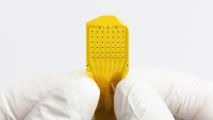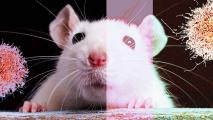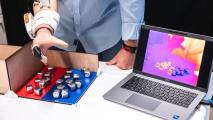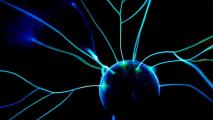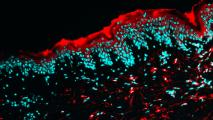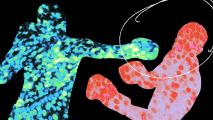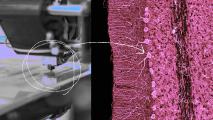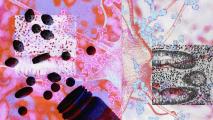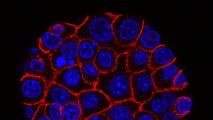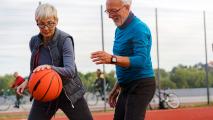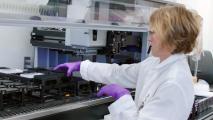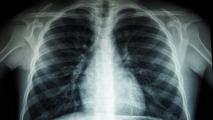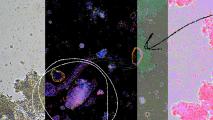
Biotech
Human history has been all but defined by death and disease, plague and pandemic. Advancements in 20th century medicine changed all of that. Now advancements in 21st century medicine promise to go even further. Could we bring about an end to disease? Reverse aging? Give hearing to the deaf and sight to the blind? The answer may be yes. And soon.
More
OpenBCI’s new VR headset reacts to your brain and body
OpenBCI is reshaping the relationship between humans and the virtual world with Galea Beta, a headset that measures the body and brain.
Weight-loss drug reduces cravings for opioids in small study
A first-of-its-kind trial found that GLP-1 agonists, a popular kind of weight-loss drug, could help people overcome their opioid cravings.
The untapped potential of stem cells in menstrual blood
Stem cells found in menstrual blood could unlock new therapies and diagnostic tests, some researchers argue.
Man feels hot and cold again with prosthetic hand breakthrough
Researchers have built a device that helps users feel temperature through a prosthetic arm. A new study shows it works with high accuracy.
Evidence that gamma rhythm stimulation can treat neurological disorders is emerging
Researchers survey the therapeutic potential of noninvasive sensory, electrical, or magnetic stimulation of gamma brain rhythms.
Bioluminescent plants don’t exist in nature — but you can buy one for $29
Biotech firm Light Bio is selling gene-edited bioluminescent plants that glow green in the dark for just $29.
New pharma supergroup aims to tackle skin disorders
Six biotech companies just merged to form Alys Pharmaceuticals with the goal of developing new treatments for skin disorders.
Why is anxiety spiking in young people but not older adults?
Anxiety among adults 18 to 25 nearly doubled in that time period, but remained stable for adults 50 and older.
Scientists stole a mutation from cancer and used it to kill tumors
Inserting a mutation found in cancer cells into CAR-T cells enabled them to kill a variety of solid tumors in mice.
Focus on right now, not the distant future, to stay motivated and on track to your long-term health goals
Research highlights three effective strategies to help you achieve your goals, including prioritizing short-term consequences.
Injections of brain protein reverse memory loss in mice
A protein called “KIBRA” could be the key to new Alzheimer’s treatments that don’t just slow disease progression, but reverse memory loss.
Netflix’s “You Are What You Eat” proves twin studies’ importance to science
What is it that makes twins so special, and how do researchers harness the power of twins? “You Are What You Eat” helps prove their importance.
Scientists create the first “functional” 3D-printed mini brains
The first 3D-printed brain organoids that function like natural brain tissue could lead to breakthroughs in neuroscience.
How to stop our immune systems from turning on us
From “inverse vaccines” to repurposed cancer therapies, several potential cures for autoimmune diseases are showing serious promise.
New hope for early pancreatic cancer intervention via AI-based risk prediction
To train their machine learning models, MIT researchers used electronic health record data from various institutions across the U.S.
One-shot CRISPR treatment for inherited disease aces first human trial
A CRISPR treatment for hereditary angioedema significantly reduced swelling attacks in its first human trial.
New non-opioid pain reliever moves closer to approval
Vertex Pharmaceuticals’ new painkiller, VX-548, significantly reduced moderate-to-severe pain in two phase 3 trials.
Inhalable sensors could enable early lung cancer detection
MIT engineers have designed diagnostic particles that can be aerosolized and inhaled to find cancer-associated proteins in the lungs.
“Insane” new type of virus-like organisms found in human gut
Stanford scientists have discovered a strange new class of virus-like organisms, called “obelisks,” in the human gut microbiome.
Get inspired with the most innovative stories shaping the world around us.




